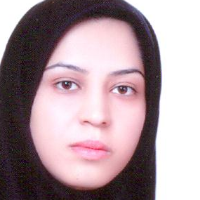The Mineral Content of Sesame Seed and Its Transition to Ardeh and Refined Sesame Oil
It was shown that contamination of agricultural pasturage with fertilizers, application of sewage and effluents in irrigation, use of pesticides and air pollution have led to the entrance of chemical contaminants, including metals, into plants. On the other hand, food processing is (handling, processing, transportation) considered as an important way of food contamination. Vegetable oils are essential in human dietary which is introduced as crucial sources of energy, fat soluble vitamins, and essential fatty acids. Sesamum indicum L., known as sesame seed, has been cultivated in Asian countries from ancient times as vegetable oil for cooking and seasoning ingredients. In recent years, the sesame oil has been considered due to its high antioxidant activities and nutritional properties. Due to the use of sesame seeds extracted oil in two form of ardeh oil and sesame oil, the amounts of mineral elements (phosphorus, potassium, iron, nickel, cobalt, manganese, calcium and magnesium) in sesame seeds and its extracted oils (ardeh oil and refined sesame oil) were investigated.
In order to determine the mineral concentration, refined sesame oil and ardeh oils were prepared from an imported sesame seed. In order to prepare the sesame oil, sesame seeds were put into a cold presser and the oil was extracted under low pressure. The Ardeh oil was prepared by adding water to sesame paste in the ratio of 2.2:10 and oil was separated by centrifugation. The sesame seeds and oil samples (refined sesame oil and ardeh oils) were digested by microwave digestion method in presence of 5 ml 65% nitric acid and 2 ml of hydrogen peroxide (H2O2). The digested samples were then filtered through 0.45 µm filter membrane. Then, the concentrations of phosphorus, potassium, iron, nickel, cobalt, manganese, calcium and magnesium in sesame seeds, ardeh oil and refined sesame oil were examined using Inductively Coupled Plasma - Optical Emission Spectroscopy (ICP – OES).
In the present study, the limit of detection (LOD) for each studied mineral elements were determined as nickel: 4 mg/kg, magnesium: 0.00066 mg/kg, manganese: 0.000134 mg/kg, phosphorus: 0.384 mg/kg, cobalt: 0.594 μg / kg, iron: 0.000797 mg/kg, potassium: 0.00394 mg/kg, calcium 0.005 mg/kg. According to the results, the highest amounts of mineral elements were detected in sesame seeds. The achieved results showed that the method of sesame oil extraction can reduce the mineral elements in the final sesame oils. The amounts of mineral elements in sesame seeds were estimated as P > Ca > K > Mg > Fe > Mn > Co > Ni. The pattern of mineral elements in Ardeh oil was reported as P > Fe > K > Co > Mg > Ni > Mn > Ca. The reduction pattern was reported as P > K > Fe > Ni > Co > Mn > Ca > Mg in refined sesame oil. As can be seen the order of mineral elements was changed in two oil samples and sesame seed. It was shown that except for K and Ca, all mineral elements in ardeh oil were higher than refined sesame oil. As can be seen, the refining process was effectively reduced the metals in oil samples. On the other hand, high amount of mineral elements in sesame seed in comparison to extracted oils could be attributed to lack of processing methods which are present in oil production in both methods.
It should be considered that presence of different metals in vegetable oils could facilitate the oil deterioration and oxidization as well as oil shelf life reduction. Since the most of the sesame lots in Iran are imported, it is necessary to monitor the amount of mineral elements.
- حق عضویت دریافتی صرف حمایت از نشریات عضو و نگهداری، تکمیل و توسعه مگیران میشود.
- پرداخت حق اشتراک و دانلود مقالات اجازه بازنشر آن در سایر رسانههای چاپی و دیجیتال را به کاربر نمیدهد.



